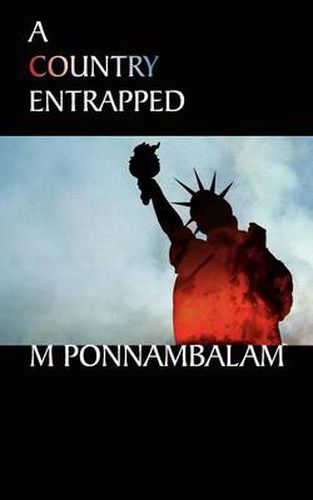Readings Newsletter
Become a Readings Member to make your shopping experience even easier.
Sign in or sign up for free!
You’re not far away from qualifying for FREE standard shipping within Australia
You’ve qualified for FREE standard shipping within Australia
The cart is loading…






This title is printed to order. This book may have been self-published. If so, we cannot guarantee the quality of the content. In the main most books will have gone through the editing process however some may not. We therefore suggest that you be aware of this before ordering this book. If in doubt check either the author or publisher’s details as we are unable to accept any returns unless they are faulty. Please contact us if you have any questions.
‘Why does the Third World Hate us so much?’ The American citizen asked himself As he ran along the street.
In the aftermath of 9/11 and the destruction of the World Trade Center in New York, America learnt a lot about itself. Just who was to blame for this apocalyptic disaster is the subject of the first of these two extended poems by a Sri Lankan Tamil, someone who instinctively aligns himself with the Third World in the quotation above. His second poem, ‘The Song of a Liberated Zone’, is focused on north-east Sri Lanka (Ceylon), home to the oppressed Tamil people.
The Tamils could be likened to the Catholics in Northern Ireland during ‘the Troubles’. The islands off the northern Sri Lankan coast (‘ants, crawling on the tip of a mango’) were overrun by the national army, and a long-running anti-terrorist war against the Tamil Tigers came to an uneasy end… but only after exodus, transportation, rape, burning and torture.
As K Sivathamby aptly says in his foreword to these provocative poems, ‘Poetry is not merely a matter of saying sweet things about sweet matters. More truly, it is genuine language of a thoughtful mind and an aspiring heart, longing for a better world.’
Filled with amazement at man’s treatment of his fellows, yet filled with hope for humanity as well,
M Ponnambalam’s vision employs an exile’s sharpened eye to describe the problems of America’s attitude to global politics, and the experience of terrorism and its aftermath in the Third World itself.
$9.00 standard shipping within Australia
FREE standard shipping within Australia for orders over $100.00
Express & International shipping calculated at checkout
This title is printed to order. This book may have been self-published. If so, we cannot guarantee the quality of the content. In the main most books will have gone through the editing process however some may not. We therefore suggest that you be aware of this before ordering this book. If in doubt check either the author or publisher’s details as we are unable to accept any returns unless they are faulty. Please contact us if you have any questions.
‘Why does the Third World Hate us so much?’ The American citizen asked himself As he ran along the street.
In the aftermath of 9/11 and the destruction of the World Trade Center in New York, America learnt a lot about itself. Just who was to blame for this apocalyptic disaster is the subject of the first of these two extended poems by a Sri Lankan Tamil, someone who instinctively aligns himself with the Third World in the quotation above. His second poem, ‘The Song of a Liberated Zone’, is focused on north-east Sri Lanka (Ceylon), home to the oppressed Tamil people.
The Tamils could be likened to the Catholics in Northern Ireland during ‘the Troubles’. The islands off the northern Sri Lankan coast (‘ants, crawling on the tip of a mango’) were overrun by the national army, and a long-running anti-terrorist war against the Tamil Tigers came to an uneasy end… but only after exodus, transportation, rape, burning and torture.
As K Sivathamby aptly says in his foreword to these provocative poems, ‘Poetry is not merely a matter of saying sweet things about sweet matters. More truly, it is genuine language of a thoughtful mind and an aspiring heart, longing for a better world.’
Filled with amazement at man’s treatment of his fellows, yet filled with hope for humanity as well,
M Ponnambalam’s vision employs an exile’s sharpened eye to describe the problems of America’s attitude to global politics, and the experience of terrorism and its aftermath in the Third World itself.